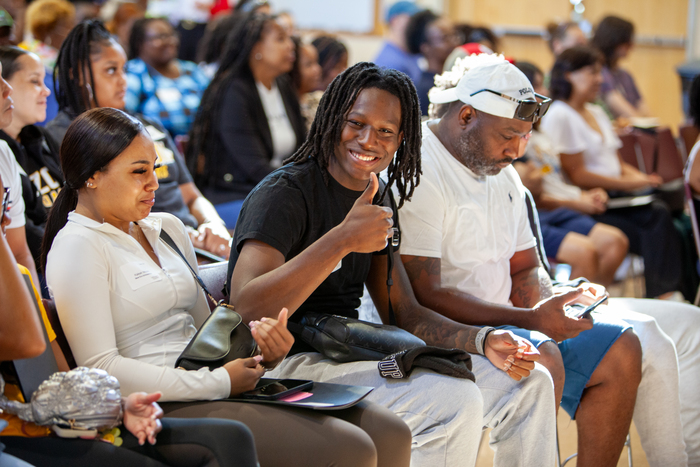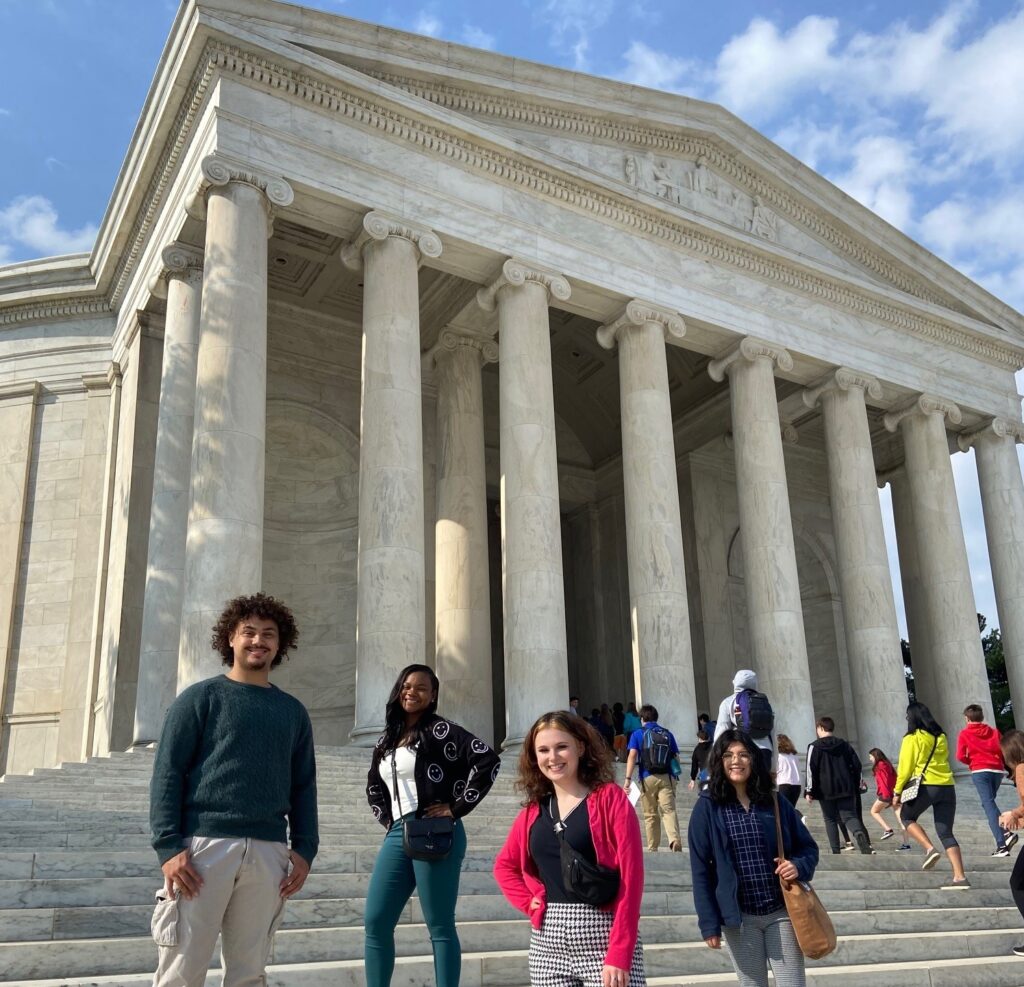
In a staff of 13, it seems odd to refer to three people as a “department.” So, for purposes of this blog post, I’ll just tag them Superheroes of The Scholarship Foundation.
Teresa Steinkamp is Director of Advising. Felipe Martínez is Student Advisor/Immigrant Student Services. Robert Elam is Student Advisor. Among them, they have the credentials that come with years of professional experience and advanced degrees. As important, they have their own personal experiences qualifying them to work with students whose path to degree is not perfectly paved.
It’s tempting to oversimplify what they do; depending upon how you come into contact with them, you may view that single transformative experience as more important than anything else could possibly be. As a squad, they reach out widely and dig deep, delivering to the St. Louis region the critical information and individual support it takes to navigate higher education.
For many years now, it has been impossible (or at least irresponsible) to make loans and grants without also providing students the guidance and due diligence required to make good decisions and reduce risks associated with being in too much debt and/or financially gapped.
Last week, alone, the Superheroes reached 558 students and family members. I think you’ll understand their incredible feats best by a simple recitation. Last week, they:
1. Had individual appointments with 12 students.
2. Conducted five formal presentations on the Free Application for Federal Student Aid (FAFSA) and on Deferred Action for Childhood Arrivals (DACA).
3. Appeared at two college fairs.
4. Hosted three meetings with community partners (nonprofits and high school counselors).
5. Made a campus visit and attended a university meeting.

Last week they were in three locations in north St. Louis County, two Illinois locations, and two Jefferson County locations. It’s unfortunate for their vehicles that their superhero powers do not extend to teleportation or flight.
Between meetings and presentations, they work to keep up with institutional, state, and national developments affecting low income students. Often, they are answering student calls and texts on evenings and weekends. And throughout, they insist on putting students first, doing everything they can to help students find safe paths toward degrees.
I am in awe of them, and thought you would want to know.
– Faith Sandler




